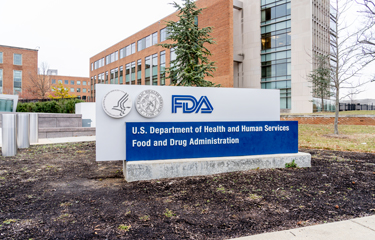Expert cautions against participating in voluntary FDA records requests

U.S. imports expert and FDAimports.com Founder and CEO Benjamin England said the U.S. Food and Drug Administration (FDA) may try new tactics related to records and documentation in place of actual inspections in order to regulate the seafood industry.
Speaking at a panel during Seafood Expo North America Reconnect, England said he’s seen increased activity from the FDA on records requests. Key to that, he said, is the FDA’s attempts to continue to conduct inspection activity during the COVID-19 pandemic.
“Through the pandemic, they’ve been doing it in terms of mostly email, telephone calls, document presentation, from the supplier,” England said. “The government is going to try, I think, to start pulling records from seafood suppliers, along with other industries, without physically showing up.”
The reason that the new attempts matter, England said, is tied to the Center for Food Safety and Applied Nutrition, which instituted a program in 2020 where human food facilities could voluntarily participate in remote regulatory assessments.
“The facilities who choose to participate, they share information with the agency, required records associated with its compliance obligations – notice the use of the word ‘required’ in a voluntary program – and allow FDA to evaluate those records outside of a physical inspection.” England said. “FDA is calling it an assessment, not an inspection. They should not be taking enforcement action based upon it, and we would expect that they wouldn’t.”
However, there’s a key provision in regulatory law, he said, that should make companies wary of participating voluntarily in the program.
“There is no ‘fruit of the poisonous tree’ doctrine in regulatory law,” England said.
That means regulatory law differs from criminal law in one important way: In criminal law, if any evidence or information is gained illegally, then the evidence and information – and everything derived from it – is inadmissible in law.
“That doesn’t exist in regulatory law,” England said. “So if the government does something it’s not supposed to do, but it gets information that it needs to make another regulatory decision, the government can use that for the other regulatory decision. And I’ve seen this happen maybe three or four times in the last six months, where the government has just gone off the rails in terms of the way that they’ve actually managed an administrative process.”
England said he thinks the government is attempting to “reach into the inspection process in a remote way,” with companies participating only having something to lose.
“I would say that anybody who participates is doing so at their own peril. Whenever the government asks me for something I don’t have to give to them, I always say no,” England said. “If the government starts looking for information related to your facility, and they’re not issuing you an actual inspection notice, my advice would be to find somebody who would be able to help you talk through that.”
England added that while the seafood industry is under strict requirements for carrying documentation related to HACCP and other regulations, the FDA doesn’t actually have the authority to remotely request that documentation.
“It matters, because when the FDA shows up, or doesn’t, they call, the questions is, ‘Do I be a good neighbor, should I cooperate, should I participate in the program?’” England said. “I have yet to see a situation where that has turned out well. It just doesn’t.”
The difficulty, he added, is navigating the fine line between not participating, and also not looking like a business that makes a good target for the FDA.
“The answer is, that you communicate clearly, concisely, you explain why you’re not giving the information, and that if they’d like to do an inspection they can come, because of course they have that authority,” England said. “If they push, then you call somebody to help push back. As the government is making its way through COVID, it is changing the way it is trying to maintain control of its regulated industry, and it’s doing it outside the lines.”
Photo courtesy of JHVEPhoto/Shutterstock






Share